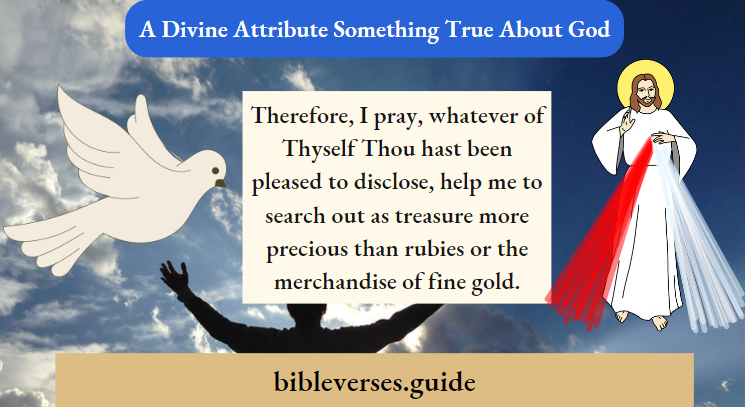Reference




OpenAI's Answer
Referring to 'the Divine' instead of 'God' can be seen as more accurate for a number of reasons rooted in the nuances and broader applicability of the term 'divine'. Here are some insights based on various sources:
-
Abstract and Impersonal Nature: The term 'the Divine' is more abstract and impersonal compared to 'God', which is often perceived as more personal and embodied. This abstraction allows 'the Divine' to encompass a wider range of spiritual and metaphysical concepts that may not be strictly tied to a single deity or religious framework source.
-
Broader Inclusivity: 'Divine' can refer to anything that relates to or proceeds from a deity, thereby including divine attributes, essence, and phenomena across different religious and philosophical traditions. This flexibility can make 'the Divine' a more inclusive term when discussing transcendent or supernatural subjects without confining the conversation to a specific religion or conception of deity source.
-
Philosophical and Theological Precision: In philosophical and theological discussions, 'the Divine' can encompass various attributes and principles that might be overly simplistic or limited when referred to simply as 'God'. Some traditions distinguish between the essence of divinity and manifestations of gods, indicating a more nuanced understanding of transcendent reality source.
-
Avoiding Anthropomorphism: Using the term 'the Divine' helps to avoid anthropomorphic connotations that the term 'God' might carry, which can be tied to specific attributes like gender, form, and personality. This can be particularly important in discussions aiming for a more universal or non-anthropocentric perspective on the divine nature Reddit discussion.
Additionally, the following images provide visual representation and interpretations related to the concept of divinity:


In summary, using 'the Divine' over 'God' offers a broader, more inclusive, and less anthropomorphic way to reference transcendent concepts, which can be particularly useful in interfaith or philosophical discussions.